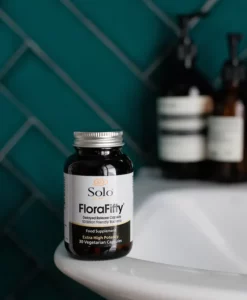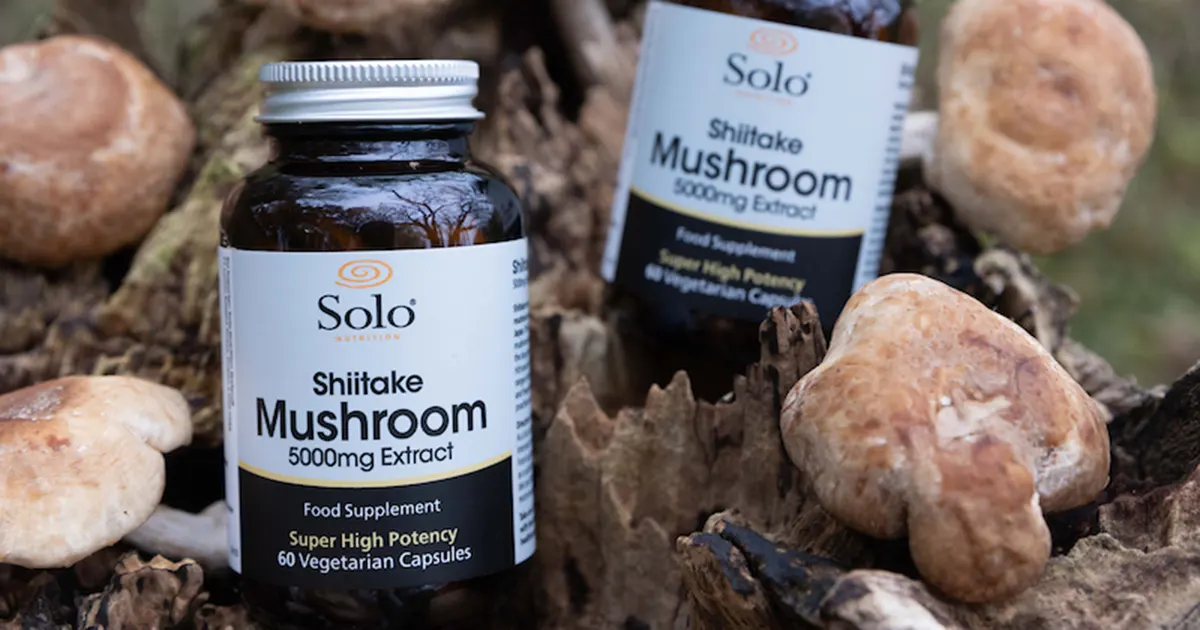
Improving gut health – Myths, misconceptions and what we really know about gut health
Gut instinct – A feeling described as an unexplained knowing that seems to come from within. Note, that this saying does not refer to the heart, most often associated with emotions, or the brain, our thinking organ. Yet, the gut often appears in proverbs and idioms, relating to courage (having the guts), wisdom (trust your gut), and feelings of apprehension or excitement.
Although such associations have been made for decades, it’s only been recently that our scientific knowledge of the gut has begun to deepen. Various studies have revealed the role of the gut to be far more complex than previously assumed. Hence, the focus on improving gut health both from the medical science and the wellness world. But what do we really know?
Why is gut health important?
The gut has its own nervous system, the enteric nervous system, often called the “second brain”. It contains around 500 million neurons and plays a crucial role in how we process emotions, hence why stress and anxiety can affect how well our gut functions. Serotonin, a neurotransmitter that regulates mood, is largely produced in the gut, meaning our gut health can directly impact emotional well-being.
Our gut is also home to trillions of bacteria and microorganisms, known as microbiome, and these have a significant impact not only on how our digestion functions but also on our mental health.
Yet, it is not mere curiosity that has led to further investigation of the digestive system. According to a 2021 study published by the National Library of Medicine, 13 million people in the UK suffer from Irritable Bowel Syndrome (IBS) and a form of inflammatory bowel disease, such as Crohn’s or Colitis, is found in around one in 123 people. Not to mention that obesity is a growing problem in the Western world.
There has been much speculation over why our physical and mental health appears to be on the decline. The media seems obsessed with uncovering the secrets to unlocking wellbeing and uncovering that which is harming us, whether that be stress, genetics, lack of exercise, food intolerances or the rise in ultra-processed foods. And many believe that the secrets may be discovered in the gut.
The challenge is that our gut microbiome (also known as gut flora) is a complex, ever-evolving ecosystem and is as individual to each of us as our fingerprints.
How to find out more about your gut health
Historically, most of us will only learn about our gut if there is an issue serious enough to cause us long-term discomfort. In this case, we may undergo testing or an outpatient procedure to investigate the cause of the problem. However, with the rise of wellness tech, we have other options.

Wellness Tech refers to technology made available to the general public (usually at a cost) to track and/or promote health. This may include –
Wearable tech – heart-rate monitors, step trackers, sleep trackers and other health metrics such as skin temperature and stress level indicators.
Fitness apps – workouts and workout reminders, goal setting, progress tracking, data analysis
Health/wellbeing apps – meditation, mindfulness, yoga exercises as well as ‘quit’ apps to support those looking to reduce or stop bad habits such as smoking, alcohol, etc.
Nutrition apps – to help guide people towards better diet choices, sometimes tailored to their unique needs, especially for those who have completed an at-home test kit.
Some metabolic health apps have helped to develop and continue the interest in gut health and microbiome. Companies such as Zoe and FeelGut boast an at-home testing kit so users may provide biological samples (e.g., blood, stool for gut microbiome analysis) and/or complete at-home tests (like blood sugar and fat response tracking after meals).
This data is then analysed and used to inform the user, usually via the app, more about how their body processes food. It may also identify patterns in the user’s metabolism, gut health, and inflammation. This information might then be developed to provide personalised dietary advice, including recommending particular foods to improve gut microbiome diversity, pointing to ways to better stabilise blood sugar and/or optimise energy levels.
The goal of metabolic health apps such as these is to help users make informed, data-driven decisions towards improving gut health, managing weight, or addressing specific concerns like energy levels or inflammation.

But are they really effective?
Many consumers claim to have vastly improved their gut health using these test-kit-informed apps. Certainly, having that precious information so long hidden within our bodies, now in our hands, gives individuals a sense of control and empowerment. However, having the data is one thing, knowing what to do with it is quite another and concerns are emerging that some of these apps may be overreaching in their dietary advice.
Cosmopolitan recently interviewed Consultant Gastroenterologist, Peter Whorewell, for their article, How To Fix Your Gut Health, and he had this to say about private companies offering microbiome analysis –
“It’s legitimate, it tells you all the bacteria you’ve got in you, but we can’t say what it means – the public interest has overtaken the science. And that’s the problem. The data are meaningless.”
Whilst endeavouring to understand our bodies and make informed choices is undoubtedly a positive and essential path to wellbeing, it is also important to recognise that this field is highly scientific. Therefore, customers should adhere to the disclaimers that Zoe and most other metabolic health apps make clear – these are insights and indicators, not clinical test results. Furthermore, whilst they may work with scientists and nutritionists, they are part of the wellness industry and therefore not subject to the regulation applied to clinical and medical fields.
How food affects the gut

What you eat directly influences the composition and health of your gut microbiome, which in turn affects your emotions and physical health. Again, it’s important to emphasise that we all have a unique ecosystem within our gut and different bacteria and microorganisms may have varying effects on individuals. Therefore, there is no one foolproof way to keep our gut healthy and there likely never will be.
Having said that, there are groups of food that commonly have the following positive effects on our digestion and gut microbiome –
Fibre – Fibre is an essential part of our diet and supports a healthy digestive system. Soluble fibre is found in fruits and vegetables as well as oats and legumes and this acts as a probiotic, feeding gut bacteria and promoting healthy (and happy) gut microbiome.
Insoluble fibre occurs in whole grains, nuts, seeds and certain vegetables and aids digestion. Therefore, it plays an important role in combatting constipation and prevention of digestive disorders.
Omega-3 fatty acids – Found in fatty fish, nuts, and seeds, omega-3s support gut health and can reduce inflammation.
Fermented foods – Foods like yoghurt, kimchi, sauerkraut, and kefir contain probiotics, which can feed your microbiome and promote the health and presence of beneficial bacteria. However, probiotics have also been known to have the opposite effect on some people. The New York Times produced an article in January 2025 dispelling some common gut health myths with the expertise of gastroenterologist, Dr Brian Lacy. One clarification was that for some people, including those with constipation, probiotics may have a negative effect.
Improving gut health

Generally speaking, most nutritionists agree that eating a wide variety of foods and steering away from highly processed foods is the best way to promote and support your gut microbiome. Since variety in the gut is key, a variety of foods is likely to be beneficial.
Since there is no one-size-fits-all solution, elimination diets are not advisable unless of course you have been diagnosed with a food intolerance or allergy. Removing any food type completely from your diet can lead to nutrient deficiencies and have a negative impact on your gut.
When adapting your diet, and especially when introducing foods you haven’t regularly consumed before, be mindful that they may disrupt your digestion initially. Having a reaction to something the body is not used to is completely natural and does not necessarily signify an intolerance. The key is to go slow, make changes one at a time so you can properly assess their effects and seek the support of your doctor if you‘re making significant changes to your diet.
In addition to dietary support, improving gut health can also be aided by –
- Getting more quality sleep
- Regular exercise (within your physical capabilities)
- Managing stress (recognise where this can be reduced and put in place methods of combatting/reducing anxieties)
- Drinking more water
Supplements to support gut health may also be considered and help you as you embark on this journey. Improving gut health may not be solely achieved by taking supplements but aids such as FloraFifty can assist the friendly bacteria in bypassing the stomach and reaching the gut.
may also be considered and help you as you embark on this journey. Improving gut health may not be solely achieved by taking supplements but aids such as FloraFifty can assist the friendly bacteria in bypassing the stomach and reaching the gut.
Whilst there are a range of gut-related supplements available, FloraFifty has several special qualities. One being that the delayed release capsule helps the ‘friendly’ bacteria bypass the stomach and reach the intestines – where they do the most good – intact. Furthermore, each capsule contains a huge 22 strains of 50 billion live bacteria whereas many other probiotics contain far fewer strains.



